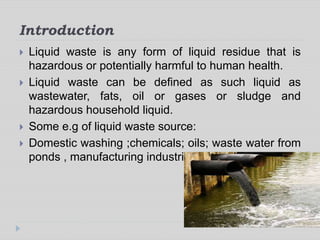Some Known Incorrect Statements About Reclaim Waste
Some Known Incorrect Statements About Reclaim Waste
Blog Article
Things about Reclaim Waste
Table of ContentsThe Of Reclaim Waste4 Easy Facts About Reclaim Waste DescribedThe Only Guide for Reclaim WasteUnknown Facts About Reclaim WasteNot known Facts About Reclaim Waste
Domestic sewage waste refers to the waste and products from a household septic storage tank. The appropriate management and disposal of domestic sewer waste require fluid waste to be moved to a sewage therapy plant where the correct methods and equipment are used to cleanse and dispose of waste.
Business waste typically includes potential hazards, such as flammable materials or a combination of fluid and strong waste products, and requires an advanced and in-depth disposal procedure. The disposal of commercial waste typically includes the filtration of waste prior to transportation to make certain secure and appropriate disposal. Hazardous waste is created from byproducts and overflow of commercial procedures and manufacturing.
This type of waste can not use the same sewer monitoring transportation or procedures as septic or business liquids. The commercial waste management process needs the inspection and testing of liquid waste prior to it undergoes the disposal procedure (liquid waste removal). Drainage waste is the liquid waste that comes from runoff and excess stormwater in highly inhabited areas or cities
Drainage waste can create contamination and flooding if not managed correctly. Discover extra regarding sewage system cleaning and waste monitoring. Guaranteeing appropriate waste monitoring can stop calamities and reduce ecological harm. Both individuals in residential settings and experts in industrial or manufacturing industries can take advantage of understanding the procedures and regulations of fluid waste management.
The Reclaim Waste Diaries
Contact PROS Services today to find out about our waste administration and disposal services and the correct ways to take care of the fluid waste you produce.
(https://www.provenexpert.com/reclaim-waste/)This supposed 'wastewater' is not just an important source yet, after therapy, will certainly be released to our land, rivers or the sea. Made use of water from commodes, showers, bathrooms, kitchen sinks, washings and commercial procedures is known as wastewater.

water made use of to cool machinery or tidy plant and devices). Stormwater, a type of wastewater, is overflow that streams from farming and metropolitan areas such as roofings, parks, yards, roadways, courses and gutters into stormwater drains, after rainfall. Stormwater streams neglected directly to local creeks or rivers, ultimately getting to the ocean.
6 Easy Facts About Reclaim Waste Described
In Queensland, many wastewater is treated at sewage therapy plants. Wastewater is delivered from domestic or industrial sites through a system of sewage systems and pump stations, recognized as sewage reticulation, to a sewer treatment plant.
The Department of Natural Resources suggests local governments about managing, operating and keeping sewage systems and treatment plants. In unsewered locations, city governments might call for homeowners to set up individual or house sewer therapy systems to treat residential wastewater from toilets, kitchens, restrooms and laundries. The Division of Natural Resources authorizes making use of family systems when they are shown to be effective.
A lot of stormwater gets no treatment. In some brand-new neighborhoods, treatment of some stormwater to eliminate trash, sand and crushed rock has actually begun using gross pollutant catches. Wastewater treatment occurs in four stages: Eliminates strong issue. Bigger solids, such as plastics and other things mistakenly released to sewage systems, are gotten rid of when wastewater is passed with displays.
Wastewater after that moves right into large tanks where solids work out and are removed as sludge. Grease and residue are skimmed from the surface. Utilizes little living organisms referred to as micro-organisms to break down and get rid of continuing to be dissolved wastes and fine bits. Micro-organisms and wastes are incorporated in the sludge. Eliminates nitrogen and phosphorus nutrients that might create algal blooms in our rivers and threaten aquatic life.
4 Easy Facts About Reclaim Waste Shown
Nutrient elimination is not available whatsoever sewer treatment plants because it calls for costly specialised devices. It is ending up being a lot more typical in Queensland. Clear liquid effluent click for info produced after therapy might still consist of disease-causing micro-organisms. If this effluent is launched right into waterways such as rivers or the sea, the micro-organisms will at some point die out.

Many wastewater moves right into the sewage system. Under the Act, regional federal governments provide authorizations and permits for ecologically relevant tasks (ERAs) including wastewater releases that could have a regional influence.
Reclaim Waste Things To Know Before You Get This
Otherwise, examples are considered laboratory analysis. Typically many examinations are required to develop the degrees of each of the various toxins such as oils, hefty metals and chemicals in water. Surveillance supplies valid details about water high quality and can validate that licence problems are being satisfied. The information obtained with tracking supplies the basis for making water quality decisions.
Report this page